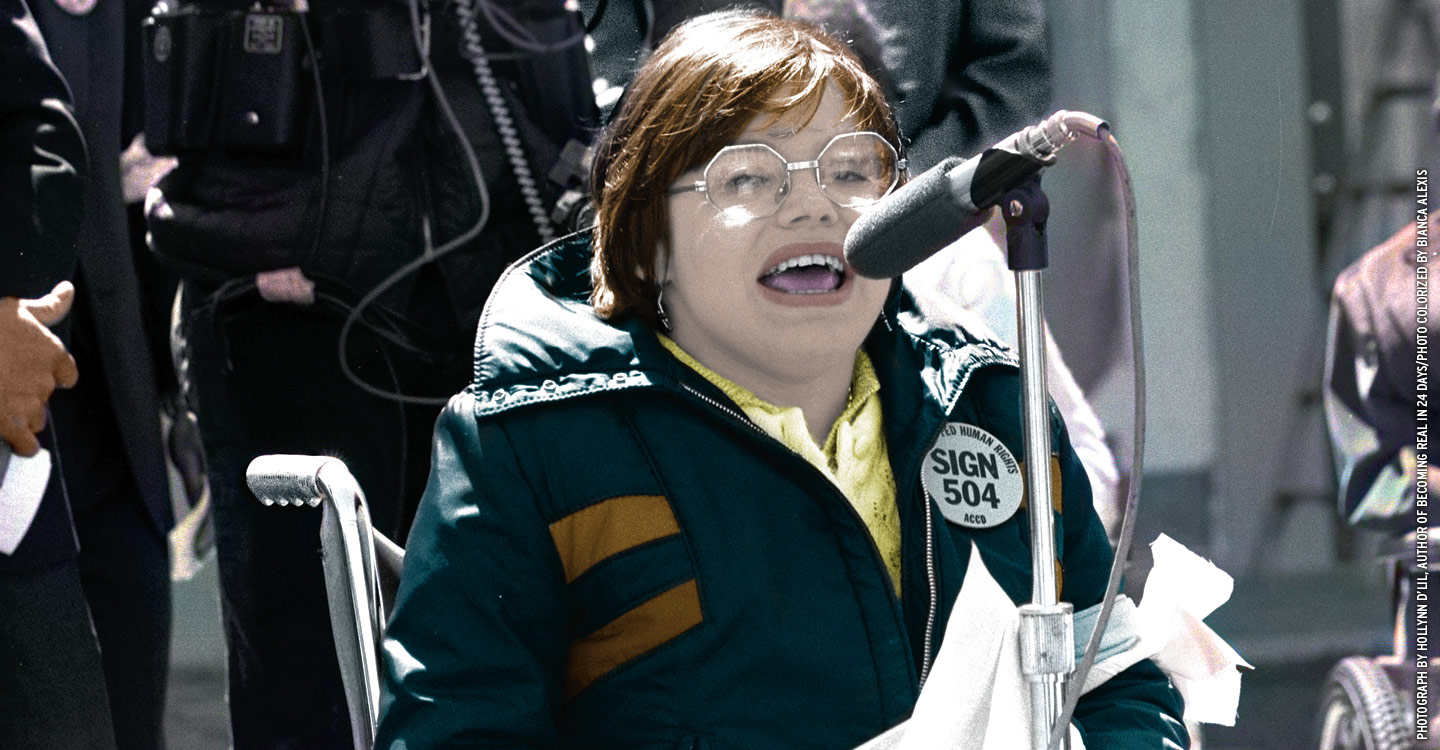Judy Heumann knows what it’s like to grow up in a world that wasn’t built for her. In 1949, when she was 18 months old, she contracted polio, which left her paralyzed.
When Heumann’s mom tried to enroll her in kindergarten in Brooklyn, New York, the principal called her a “fire hazard” because of her wheelchair, and wouldn’t let her in. When she was finally allowed to attend school three years later, she and other kids with disabilities were taught in special-education classes in the basement of the school—separated from the rest of the students.
Heumann couldn’t go with her friends to many places, such as the movie theater, because there were no ramps, and she often had to be carried up flights of stairs.
But Heumann never felt ashamed of who she was. She knew it wasn’t people with disabilities who needed to change—it was the world around them.
“People continually think that those of us with disabilities would prefer not to have our disabilities,” Heumann, now 72, says. “And I believe it’s important for people to see that disability is a normal part of life and that the barriers we’re facing, in many ways, are external to us.”
Judy Heumann knows what it’s like to grow up in a world that wasn’t built for her. In 1949, when she was 18 months old, she contracted polio. Her bout with the disease left her paralyzed.
When Heumann’s mom tried to enroll her in kindergarten in Brooklyn, New York, the principal called her a “fire hazard” because of her wheelchair. He wouldn’t let her in. She was finally allowed to attend school three years later. But she and other kids with disabilities were taught in special-education classes in the basement of the school. They were separated from the rest of the students.
Heumann couldn’t go with her friends to many places, such as the movie theater. That‘s because there were no ramps, and she often had to be carried up flights of stairs.
But Heumann never felt ashamed of who she was. She knew it wasn’t people with disabilities who needed to change—it was the world around them.
“People continually think that those of us with disabilities would prefer not to have our disabilities,” Heumann, now 72, says. “And I believe it’s important for people to see that disability is a normal part of life and that the barriers we’re facing, in many ways, are external to us.”

